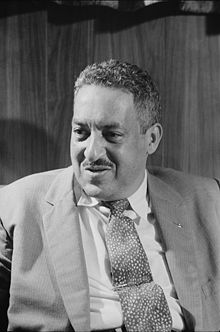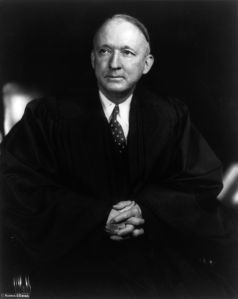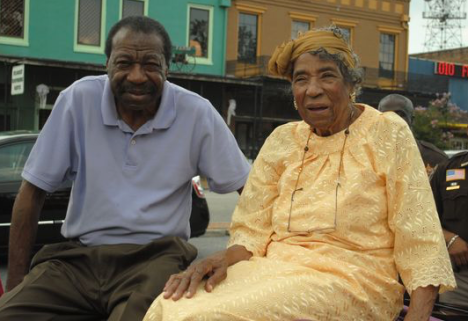On December 20, 1958, Bruce Boynton, a Black senior at Howard Law School, left D.C. for Montgomery, Alabama (in order eventually to reach Selma) to spend the Christmas holidays. He took a Trailways bus, which was operated by Virginia Stage Lines. During a stop at a Trailways bus station in Richmond, Virginia, Boynton went to a restaurant next to the terminal for a meal. The restaurant was segregated and had a separate section for Blacks. But that section was crowded, so Boynton sat in the white section. The waitress would not serve him, and called the assistant manager, who “instructed” Boynton to move. When he refused, a police officer arrived to arrest him. Handcuffed and hauled off on a misdemeanor trespass charge, he spent the night in jail.
Boynton was charged with trespass based on § 18-225 of the Code of Virginia of 1950, as amended (1958), making it a misdemeanor, punishable by up to thirty days in jail and a $100 fine, “without authority of law… [to] remain upon the lands or premises of another after having been forbidden to do so by the … lessee, custodian, or person lawfully in charge of such land…..”
The case came up for trial on January 6, 1959, before a judge of the Richmond Police Court, who found Boynton guilty.
Boynton was not only a law student but came from a family of civil rights activists: his parents, Sam and Amelia Boynton, devoted themselves to obtaining voting rights for all Americans.
Boynton appealed on the grounds that his conviction infringed his rights under the Interstate Commerce Act, the Commerce Clause of the Constitution, and the Fourteenth Amendment. The appeals court, however, upheld the lower court’s verdict and sentence. The Virginia Supreme Court of Appeals refused a writ of error to review the action of the appeals Court, “being of opinion that the said judgment is plainly right…. “

Thurgood Marshall in 1957
On September 15, 1959, Boynton filed a petition for certiorari in the United States Supreme Court. His lead lawyer was Thurgood Marshall, who one day would become the first Black associate justice on the nation’s highest court. The Court, in the opinion Boynton v. Virginia, 364 U.S. 454 (1960) written by Justice Hugo Black, averred:
The basic question presented in this case is whether an interstate bus passenger is denied a federal statutory or constitutional right when a restaurant in a bus terminal used by the carrier along its route discriminates in serving food to the passenger solely because of his color.”
The Court maintained that “[n]otwithstanding the fact that the petition for certiorari presented only the constitutional questions this Court will consider the statutory issue, which involves essentially the same problem — racial discrimination in interstate commerce.”
This was an interesting approach since there was a legitimate question about the relationship between the restaurant and the bus terminal, and “the evidence on this record does not show that the bus company owns or actively operates or directly controls the bus terminal or the restaurant in it.”

Justice Hugo Black
In the majority’s view, the lack of evidence of control was immaterial:
“. . . the fact that § 203(a)(19) says that the protections of the motor carrier provisions of the Act extend to “include” facilities so operated or controlled by no means should be interpreted to exempt motor carriers from their statutory duty under § 216(d) not to discriminate should they choose to provide their interstate passengers with services that are an integral part of transportation through the use of facilities they neither own, control nor operate. The protections afforded by the Act against discriminatory transportation services are not so narrowly limited. . . . And so here, without regard to contracts, if the bus carrier has volunteered to make terminal and restaurant facilities and services available to its interstate passengers as a regular part of their transportation, and the terminal and restaurant have acquiesced and cooperated in this undertaking, the terminal and restaurant must perform these services without discriminations prohibited by the Act. In the performance of these services under such conditions, the terminal and restaurant stand in the place of the bus company in the performance of its transportation obligations. . . . Although the courts below made no findings of fact, we think the evidence in this case shows such a relationship and situation here.”
Rather, the Court argued, Virginia’s law contravened federal law, holding:
Under § 216(d) of the Interstate Commerce Act, which forbids any interstate common carrier by motor vehicle to subject any person to unjust discrimination, petitioner had a federal right to remain in the white portion of the restaurant, he was therefore ‘under authority of law,’ and it was error to affirm his conviction.”
Thus the Supreme Court reversed the decision of lower courts by a vote of 7-2. Justices Charles Evans Whittaker and Tom Campbell Clark joined in a dissent.
Boynton’s father Sam died in 1963, having lived long enough to see his son’s Richmond court challenge succeed. Amelia continued to work for civil rights, becoming a national celebrity. She was a key figure in the 1965 Selma to Montgomery marches and was awarded the Martin Luther King, Jr., Freedom Medal in 1990.

Aug. 18, 2011 photo of Bruce Boynton and his mother, civil rights icon Amelia Boynton on her 100th birthday
When Amelia Boynton died at the age of 110, First lady Michelle Obama sent her family a letter of condolence shortly after her passing, describing the legendary civil rights leader as “one of the quiet heroes who made America what it is today.” So was her son.
Filed under: History, legal, SCOTUS | Tagged: History, legal, SCOTUS |




Leave a comment